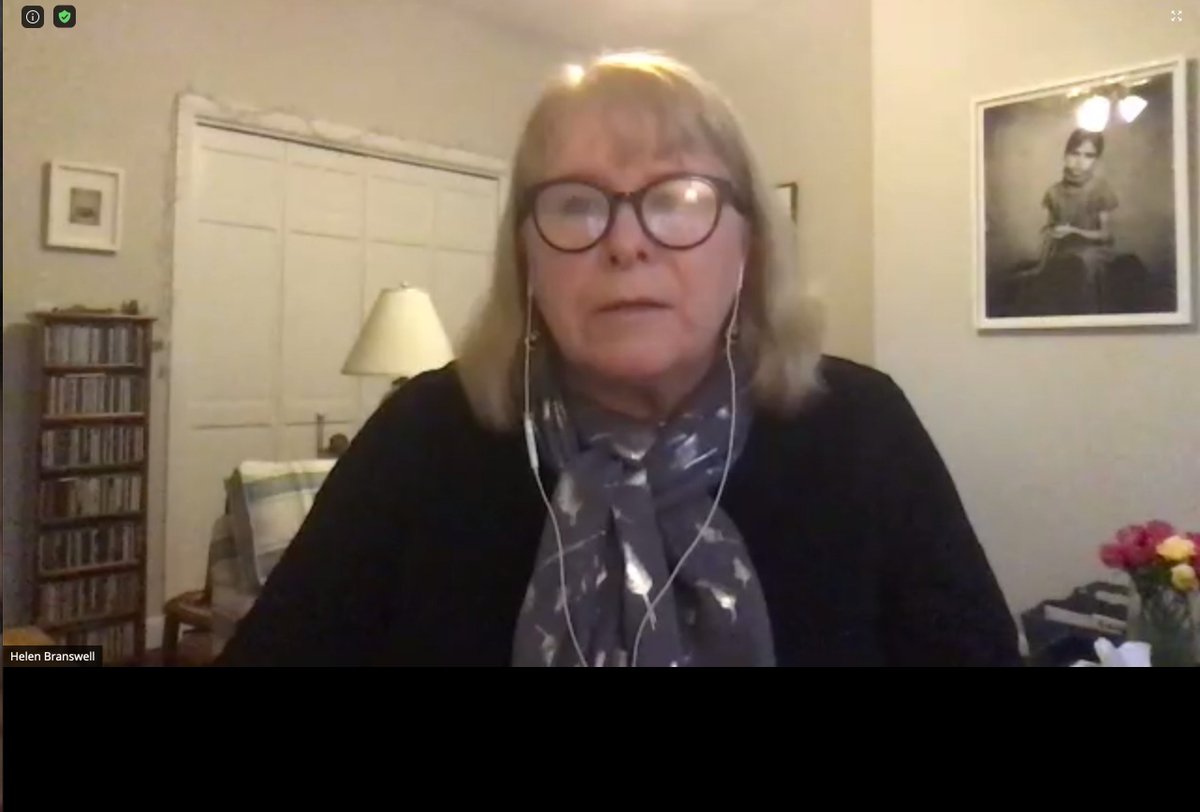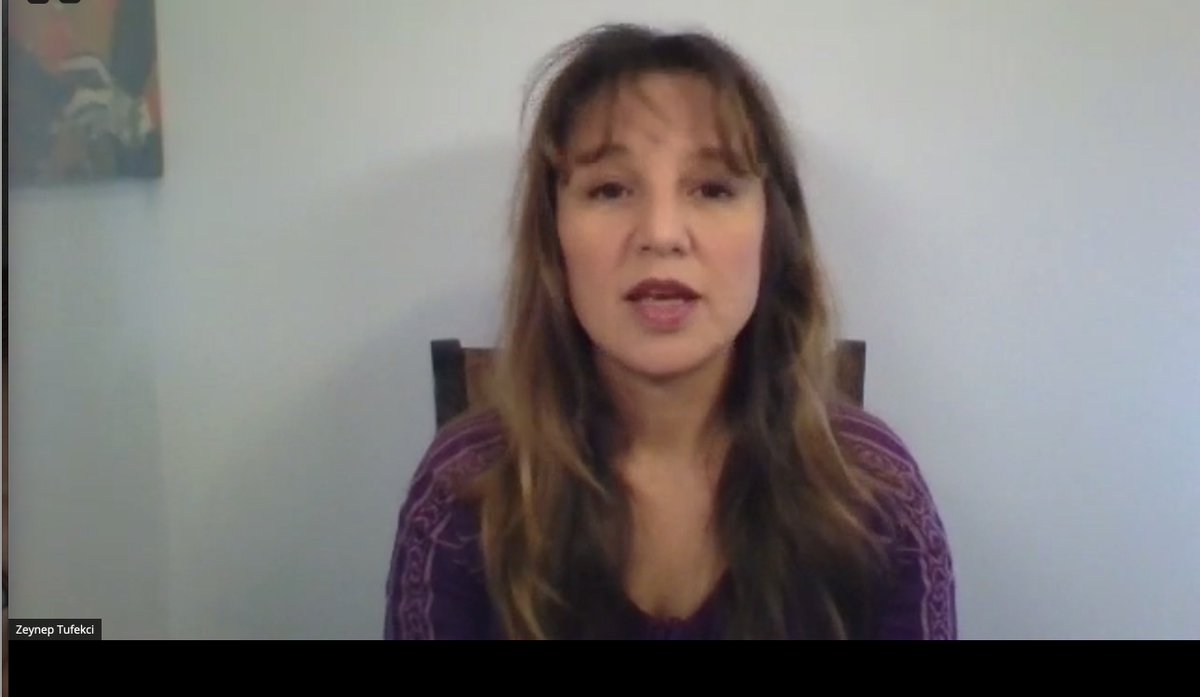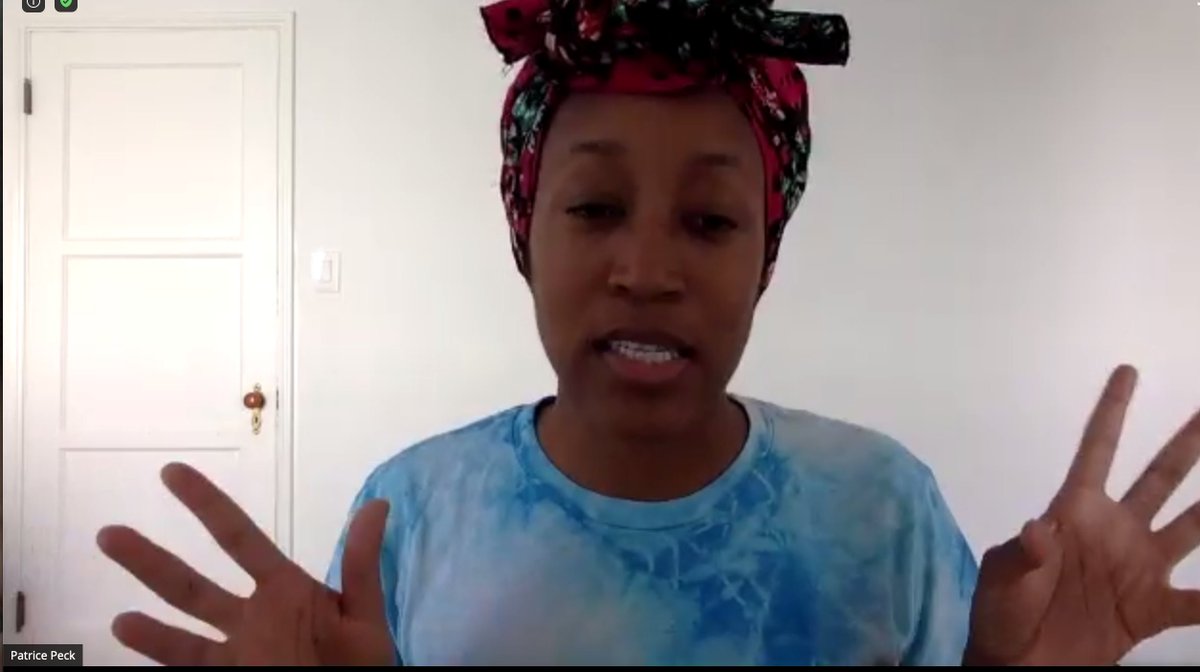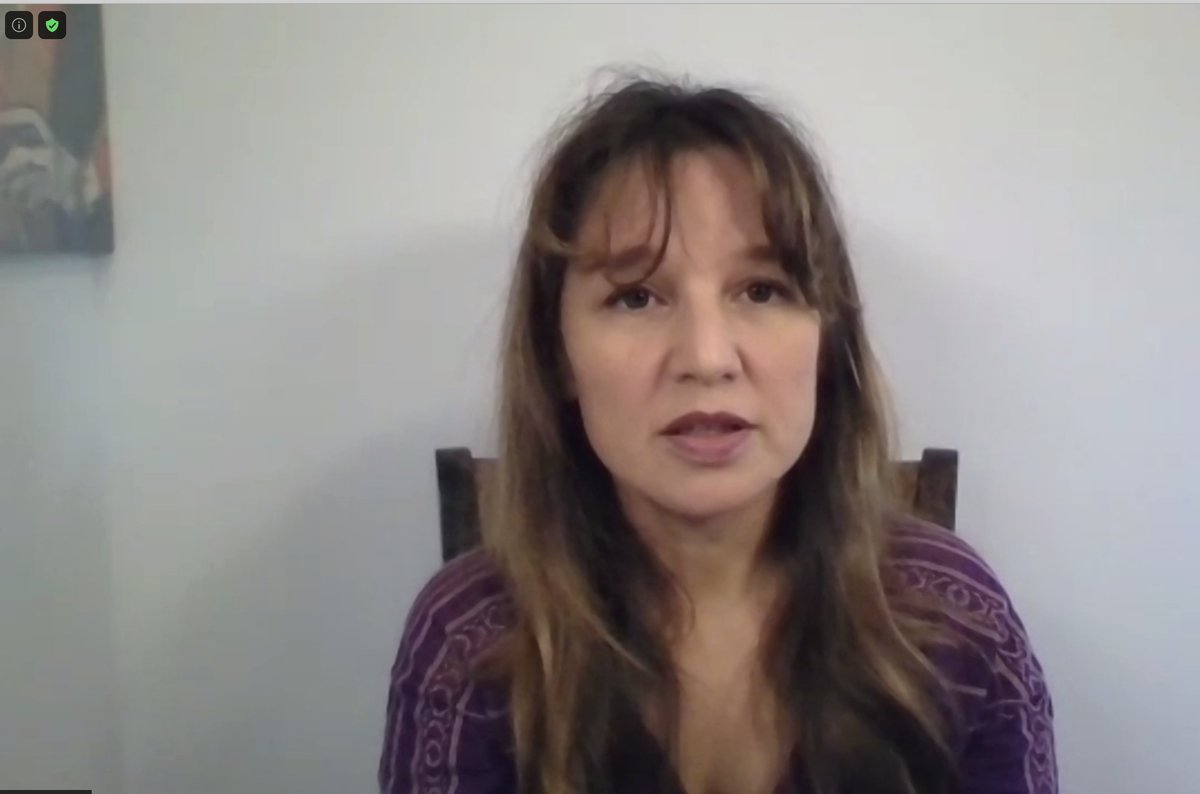Livetweeting Natl Association of Science Writers& #39; event on covering COVID @HelenBranswell @zeynep @laurahelmuth @SpeakPatrice https://www.nasw.org/COVID19series ">https://www.nasw.org/COVID19se...
"I can& #39;t actually time when I knew it was going to be a pandemic" -- @HelenBranswell . Recalls Fauci saying risk to Americans would be low, and thinking to herself "I thought he was crazy. There& #39;s no force field around China."
Branswell says the one thing she didn& #39;t expect was for the US to fall down on the testing regimen so much.
@zeynep next. She& #39;s not a science reporter, she notes, but just _noticed stuff_. "When China shut down Wuhan...that was like a 5 alarm fire." Her first pandemic order on Amazon for herself: Jan 5!
@zeynep started tweeting "we& #39;re gonna get it." despite "watching my friends, my colleagues, my world" downplay it. For SciAm, she owed a blogpost. That& #39;s was this one
https://blogs.scientificamerican.com/observations/preparing-for-coronavirus-to-strike-the-u-s/">https://blogs.scientificamerican.com/observati... #SciWri20
https://blogs.scientificamerican.com/observations/preparing-for-coronavirus-to-strike-the-u-s/">https://blogs.scientificamerican.com/observati... #SciWri20
That article, says @zeynep led readers to prepare, which was rewarding for her. Next up was her concern with experts at CDC and WHO were telling public not to use masks. She realized that they didn& #39;t trust the public not to hoard.
She wrote an oped in NYT ( https://www.nytimes.com/2020/03/17/opinion/coronavirus-face-masks.html)">https://www.nytimes.com/2020/03/1... "That& #39;s the end of my career" @zeynep feared when it came out, since she was contradicting big global health authorities; she& #39;s written more subsequently on ventilation, superspreaders etc.
"Science journalism has failed the pandemic" says @zeynep . There was a lot of one-side-vs-another. "You can& #39;t just report the experts --the experts don& #39;t agree -- you have to decide what you think is right." She wants statistics, careful analysis "I want that to be the norm."
"We gotta have a different kind of science journalism...we have to find a better way to communicate." @zeynep says she reads 100 papers for any piece she writes. @HelenBranswell : "You can& #39;t expect most journalists" to do that. Not realistic
@zeynep says it& #39;s then up to the editors to give their writers more space and time to do better on science journalims. It& #39;s not the journalists fault that they don& #39;t have the time. "It& #39;s up to society" to promote good science journalism. Editors, businesses, foundations, etc...
Next @HelenBranswell cites a piece she wrote in April that says "it is unlikely that life will return any time soon to the way it was before the virus’ emergence" https://www.statnews.com/2020/04/14/some-social-distancing-may-be-needed-into-2022-to-keep-coronavirus-in-check-new-study-says/">https://www.statnews.com/2020/04/1...
She was responding to @laurahelmuth& #39;s question about the role of journalists during the pandemic to counter _government_ misinformation
Continuing to livetweet the #SciWri20 panel https://www.nasw.org/COVID19series ">https://www.nasw.org/COVID19se... on covering the pandemic. https://www.nasw.org/COVID19series ">https://www.nasw.org/COVID19se... @SpeakPatrice up next, author of Coronavirus News for Black Folks https://speakpatrice.substack.com/ ">https://speakpatrice.substack.com/">...
Peck says that she created that newsletter in order to offer readers all the resources "in all my open tabs on the brower" and get them out to that.
Black journalists covering racial inequities in health for more than a century; but pandemic has created "sudden interest" in it
Black journalists covering racial inequities in health for more than a century; but pandemic has created "sudden interest" in it
I was "wanting to empower my community" with information about the pandemic. But Black journalist are facing incredible challenges. She& #39;s remaining resilient, and her newsletter is an example of that.
Now for some questions for the panel @HelenBranswellu2028 @SpeakPatriceu2028 @zeynepu2028 @laurahelmuthu2029 . First, what& #39;s next in the pandemic? Branswell says in winter respiratory pathogens transmit more readily; could be spikes; results from vaccine trials and authorizations for use
@zeynep says "Indoors is the issue here." Beach pictures are ways by newspapers/twitter to shame people. Actual victims are low wage service sector. Black people, hispanics face higher risks.
She adds that mass testing with low sensitivity tests may not be appropriate; herd immunity is also complicated, but scientists are not properly communicating it. We& #39;re not telling public full story on HI, ie. Why? Press, govt experts "Not trusting public with complexity"
@laurahelmuth : If Biden wins what changes? @HelenBranswell: joining WHO, "regaining trust of allies," fixing "politically driven" info on CDC website vs "science based" ; scientists doing WH briefings "instead of politicians"
Next q: what sort of stories need to still be told? @SpeakPatrice : Impacts on marginalized, disinfranchised communities Black LGBQ, including Black trans women. Science journalists reach out to leaders in those communities, "ask them what science stories they& #39;d like to read"
@zeynep says her longer stories often get more attention than shorter stories; but tweets have power too since they can set facts. "So much political reporting is missing the science" One example is today& #39;s citing Trump& #39;s antibodies today...just after he got an infusion...
@HelenBranswell on twitter: "Can be incredibly valuable." She has a twitter list of evolutionary biologists, eg, that she can monitor/communicate with to understand if virus is evolving. "You can turn to them really quickly" and watch scientists debate issues in real time
Regarding misinformation, @laurahelmuth says one thing that the Trump era has changed: You can& #39;t just repeat what President says in a headline, even if you say it& #39;s not true. @HelenBranswell says she and editors will watch erroneous information spreading....
...and debate whether it& #39;s worthwhile to "pull people out of the rabbit hole" when they are spreading incorrect information. Time is limited, says @HelenBranswell , so she says usually better to follow your reporting. @zeynep disagrees. "You have to take it on."
Misinformation is often not just lies, she says, but a mix of correct information and bad spin. People fear _correcting misinformation_ because they think it will backfire and just spread the wrong info.
@zeynep : we need reporters who a) cover the news AND other ones b) who can take on misinformation. "We need more people on all these beats."
Last bits of advice "Take care of yourself. We& #39;re long ways away from the end" -- @HelenBranswell @SpeakPatrice suggests affordable therapy at https://openpathcollective.org/ ">https://openpathcollective.org/">... , and reporters should look to cover major stories but through lens of overlooked communities
@zeynep: Earning trust through hard work for readers. "We have to work at it"

 Read on Twitter
Read on Twitter





